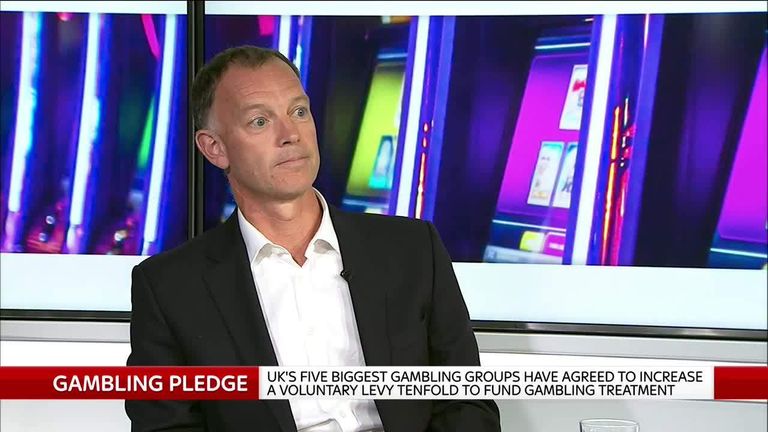By James Sillars, business reporter
Gambling firm William Hill has confirmed plans to shut 700 betting shops, placing 4,500 jobs at risk.
The bookmaker had threatened such a move before a crackdown on controversial fixed-odds betting terminal (FOBT) stakes was implemented on 1 April.
William Hill said in a statement: "Since then the company has seen a significant fall in gaming machine revenues, in line with the guidance given when the government's decision was announced in May 2018."
It warned that a "large number of redundancies" was anticipated among the staff affected.
It said: "the group will look to apply voluntary redundancy and redeployment measures extensively and will be providing support to all colleagues throughout the process.
Advertisement
"Subject to the outcome of the consultation process, shop closures are likely to begin before the end of the year."
Which stores are to go will not be confirmed until the end of the consultation period.
More from Business
William Hill – and the wider industry – had repeatedly warned that many stores would not be viable when FOBT maximum stakes were cut to £2 from £100, as the government came under pressure to tackle a surge in the number of so-called problem gamblers.
The charity GamCare identified 340,000 such people in the UK last year.
FOBT machines – described by critics as the "crack cocaine" of gambling – have been blamed for destroying lives and families while the industry has long been accused of falling short in its obligations to customers.
William Hill announced the job losses just days after it joined four other major betting companies in agreeing a package of measures to bolster funding and support for addicts.

But the company's chief executive, Philip Bowcock, later admitted to Sky's Ian King that the money raised by the sector would be less than the companies spend on advertising.
The planned closures represent about a third of William Hill's store estate – piling more pressure on the struggling high street which is already battling a toxic cocktail of weak consumer confidence and higher costs from things such as business rates and higher minimum wRead More – Source
[contf]
[contfnew]

Sky News
[contfnewc]
[contfnewc]





